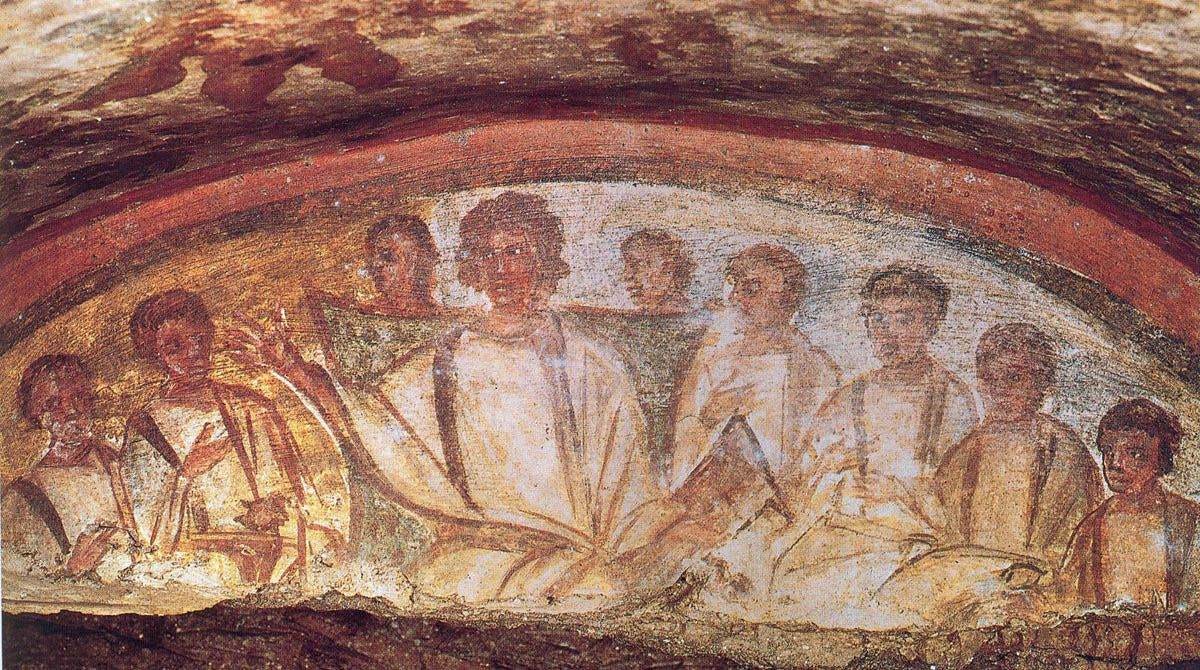“A God-revealed set of objective truths about the nature of God and the nature of man” is one definition of Christianity, from Peter Kreeft, a popular Catholic writer whose influence on my thought as a young man would be hard to overstate.1
For the record, this is not the only way Kreeft has described Christianity; he has also said, for example, that “Christianity is God’s marriage proposal to the soul.” That is closer to a much-quoted characterization from Joseph Cardinal Ratzinger, whose influence on my mature thought would be even harder to overstate: “Christianity is not an intellectual system, a collection of dogmas, or moralism. Christianity is instead an encounter, a love story; it is an event.”2
Kreeft’s first definition was highlighted on Facebook a while back by a friend, Jon Trott (coincidentally, another writer whose work played a less notable but still significant role in my thought as a young man3). Jon quoted those words to dissent from them, instead proposing that “Christianity is following Christ.”4
The contrast between Kreeft’s first definition and Jon’s inspired me to take a shot at a somewhat more expansive account of how I see Christianity. On Twitter one time I responded to a challenge to express my theology in ten words or fewer. I chose to exceed that word count by one: “God became human to unite humans to God and one another.” I think that’s a pretty good theological summary, but in this case I wanted what might be called a formal definition rather than a material definition, i.e., establishing the basis of Christian belief rather than its content. My first draft started out like this:
Christianity is seeking to follow Jesus in the belief that, in this man’s life, teaching, death, and (so we believe) resurrection, the unfathomable Power behind the universe is actually, really and truly at work on behalf of all of humanity: communicating with us, insofar as we can possibly understand, the reality of who he is and what he wants for us; bridging in some way the infinite gap between our fallen finitude and his eternal perfection.
There was more, and overall I think it was a pretty good definition. After reading it again, though, it occurred to me that (in keeping with Ratzinger’s account above, along with Kreeft’s second description) I can’t be satisfied with a definition of Christianity lacking any explicit reference to love—God’s own love and our calling to love. After reworking bits of the rest of my original definition, then, I came up with this:
Christianity calls us entrust ourselves to the goodness and love of the ultimate reality we call God in the conviction that, in an itinerant carpenter-rabbi from an obscure Galilean village who made a bit of a stir for a few months or years and ended his mortal days impaled on a Roman gibbet, God has both revealed and enacted his plan for our eternal happiness in union with himself. Being Christian is the soul’s response to the encounter with divine love in Jesus, moving us to love of God and love of neighbor.
If I’m not quite sure I would commit to this as “my definition of Christianity,” it is at least one way I would define Christianity. What do you think? Feel free to add yours!
Read more
A religious epistemic hierarchy: What I believe in 18 theses, ranked
Kreeft was raised in the same northern New Jersey enclaves of Dutch Reformed Christianity as I was, and converted to Catholicism as a college student in the 1950s. When I first started reading his Christian books circa 1980, I had no idea he was Catholic. In high school I wrote him a fan letter, he wrote back, and we corresponded for over a decade. Eventually, when I learned to my shock that he was Catholic, I wrote a bewildered letter accosting him with questions about the shortcomings of Catholic doctrine as I understood it. His patient answers to my questions over the next few years played no small role in my eventual conversion.
Ratzinger said this in a 2005 funeral homily weeks before his election to the papacy as Pope Benedict XVI. As pope, he gave this idea more authoritative and poetic expression in his great encyclical on Christian love, Deus Caritas Est:
Being Christian is not the result of an ethical choice or a lofty idea, but the encounter with an event, a person, which gives life a new horizon and a decisive direction.
There’s a story here worth telling in which Jon plays a small role, and I will write it down sometime. (I’ve written it before, on a discussion-board website that, alas, no longer exists.)
Jon wrote more that I would like to quote at length, but very unhappily Facebook deleted his account without warning or recourse.




It strikes me that the first quote from Kreeft is rather static and objective, whereas the response from Trott is all about action. Kreeft is substance without movement (okay, we have the nature of God over here and the nature of man over there, but so what? what, if anything, do these two things have to do with each other, or with the people who believe in them?), whereas Trott is movement without substance (he says "Christianity" follows "Christ" but doesn't say what those things *are*).
So I don't necessarily see Trott as "dissenting" from Kreeft, just coming at the definition of Christianity from a completely different angle. The second Kreeft quote bridges the gap somewhat, at least, by pointing to some sort of *relationship* between the nature of God and the nature of man -- a relationship that begins with action from God that invites a reciprocal action from man (or humanity, as we would say nowadays).
I wonder if tying a definition to the structure our foundations found in some of the old creed's could fill out a definition of Christianity. Either way, good writing here!